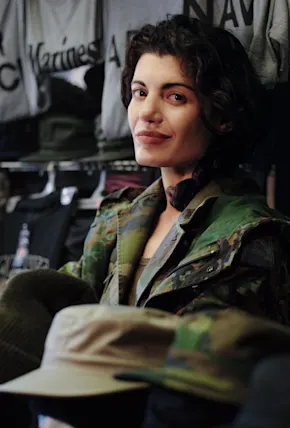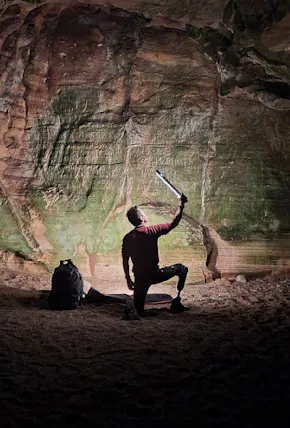Many don't know this, but the reigning champion of accessible outdoor gear and apparel started out making hand warmers. That's right, Poler Outdoor Stuff started with the most stuffiest stuff you could imagine. Then came the One Man Tent. And then the Napsack. Or maybe it was the other way around. Either way, some years later Lena Dunham wore the latter of the two on GIRLS and the rest is history. Except, by then, Poler was already a household name to those in the action sport and peripheral outdoor worlds.
Founded in 2010 Poler makes outdoor gear, apparel and other trinkets for the weekend warrior, couch surfer, regular surfer, regular guy, regular gal, etc. Poler doesn't make gear for summiting Himalayan peaks or thru-hiking the PCT. Poler makes stuff for everyday folks looking to enhance their experience in the outdoors, every day, whether that looks like riding your bicycle through town or enjoying a day at the beach with a couple pals. The brand understands we don't all have time (or the ambition) to bag Everest or even spend multiple days in the wilderness without showering.
But before we ramble on for too long, we'll let Poler Co-Founder and Creative Director Benji Wagner tell the story himself.
Let's start near the beginning. What spurred the idea to start Poler?
Really, I felt that the industry had become over the last generation really focused on technical innovation, and I don’t think there’s anything wrong with that—Poler is definitely not anti-technical—but as a consumer, I just didn’t feel that inspired by a lot of that stuff. And I felt that for most people, how they relate to the outdoors had kind of shifted since that industry was founded, which was on mountaineering. And reality is, most of us aren’t mountaineers. Even if mountaineering is awesome, it’s just not something that most people really do. It’s something they may aspire to from afar, but most people connect with the outdoors maybe by going to the beach with the family on the weekend, or you know, riding around town on a bicycle with their friends—the simple things.











